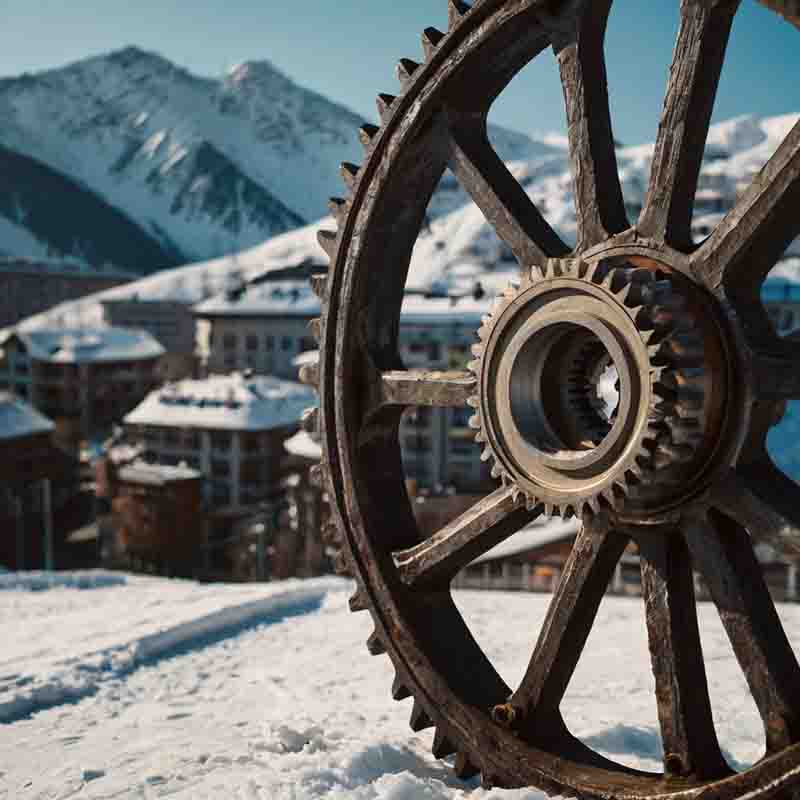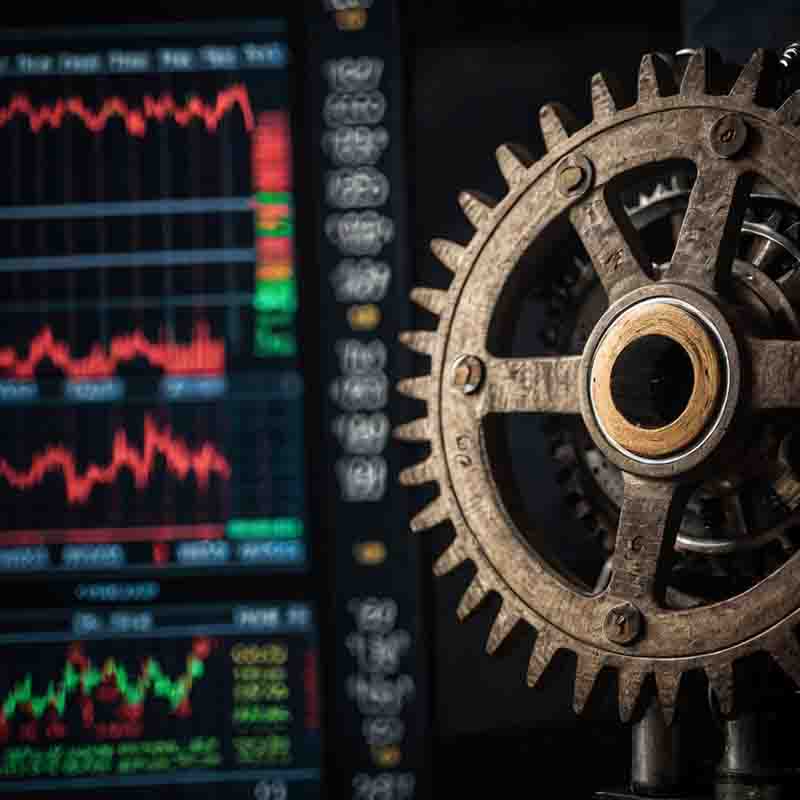Russia, the West, and the Future: Insights from the Valdai Club
The Valdai Discussion Club is a prominent Russian think tank and international discussion platform that brings together experts in fields like geopolitics, economics, security studies, and international relations.

The Valdai Club is more than a think tank; it is a forum where global thinkers examine the complexities of international relations from a variety of perspectives.
Core Topics and Themes at Valdai Club Meetings
-
Geopolitical Power Dynamics: The Valdai Club addresses the dynamics of the multipolar world order. Discussions focus on the growing role of emerging economies and their potential to influence global decision-making.
-
Global Security and Defense: Security topics are central to the Valdai Club's discussions, with a particular emphasis on NATO-Russia relations, nuclear policy, and cyber threats.
-
Energy and Economic Policy: Participants analyze energy policy, resource management, and economic sanctions, with a focus on how Russia and other nations navigate these challenges to enhance economic stability and resilience.
-
Domestic Policy and Governance: Beyond foreign policy, the Valdai Club examines Russia's internal political landscape, exploring issues of governance, political movements, and socio-economic challenges.
The Valdai Club is widely respected for its intellectually stimulating discussions that bring out a broad range of viewpoints on international relations.
Founded in 2004, the Valdai Club hosts annual meetings and publishes reports on topics like geopolitics, economics, energy policy, security, and Russia’s role in the international system.
The club provides a forum for dialogue on pressing global concerns, offering insights into Russia’s domestic and foreign policy, regional security dynamics, and emerging global power structures.
The Valdai dicussion club draws attendees from around the world, including diplomats, scholars, journalists, and policymakers, allowing for a broad exchange of viewpoints on the shifting multipolar world order.
Valdai experts delve into issues of authoritarianism, governance, and socio-political trends within Russia and the broader post-Soviet Union region, enriching discussions on how these internal dynamics influence Russia’s global positioning.
Topics such as nuclear policy, cyber threats, the BRICS network and the impact of sanctions are also covered, underlining the relevance of the club in relation to current global issues.
The Valdai Club Meeting 2024 in Sochi, Russia was the latest annual gathering of leading global experts, analysts, diplomats, and policymakers hosted by the Valdai Discussion Club.
The Valdai Club is unique for its focus on promoting Russia’s perspective on global affairs, while encouraging open dialogue with experts from around the world.
12 Facts To Know About the Valdai Club
-
Established in 2004: The Valdai Discussion Club was created to foster open discussions between Russian and international experts on Russia’s domestic and foreign policies, with a goal of improving understanding between Russia and the rest of the world.
-
Annual Meetings: Valdai meetings have been held in various Russian cities, including Moscow, Kazan, St. Petersburg, and Sochi. The club’s first session in 2004 was held near Lake Valdai, in Russia's Novgorod region, which inspired its name. In recent years, Sochi has become a more regular location for the annual Valdai sessions.
-
Global Reach: Though Russia-focused, the Valdai Club invites experts from diverse countries and political perspectives. Participants include academics, diplomats, journalists, and policy analysts from around the world, creating a debate on international relations.
-
Focus on Multipolarity: The Valdai Club emphasizes the rise of a multipolar world order, positioning Russia as a key player within a system no longer dominated by a single superpower.
-
Agenda-Setting Themes: Each Valdai Club meeting is themed around current geopolitical challenges, tied to Russia’s vision of the future.
-
Relationship with Russian Foreign Policy: While the club presents itself as an independent forum, its discussions are closely aligned with the Russian government’s perspectives.
-
Valdai Club Reports: The club regularly publishes policy reports and analytical pieces that reflect discussions from its forums. These reports cover a wide range of topics, from economic trends and energy policy to military strategy and ideological shifts in global governance.
-
Access to Russian Leadership: A distinctive feature of the Valdai Club is the direct access it provides to Russian policymakers, including President Putin.
-
Participation of High-Profile Experts: The club draws prominent figures from various fields, including former heads of state, seasoned diplomats, and leading academics.
-
Strategic Themes: Given Russia’s significant role in global energy markets, discussions at Valdai frequently cover politics, security topics, NATO-Russia relations, nuclear deterrence, cybersecurity and issues related to energy like natural gas, oil, and renewable resources.
-
Public Diplomacy: The Valdai Club serves as a “soft power” tool for Russia, aiming to counter Western narratives and project an image of Russia as a cooperative global player.
-
Academic Partnerships and Publications: The Valdai Club publishes findings in international media, making its analyses available to a wide audience interested in Russian perspectives on global issues.
The Valdai Club established in 2004 is based in Moscow. It was originally founded to promote Russia's international image and inspire dialogue between Russian and foreign specialists on critical global issues.
The Valdai Club: Timeline
The Valdai International Discussion Club was founded in 2004 by the Russkiy Mir Foundation, a Russian organization dedicated to promoting Russian culture, language, and diplomacy globally.
The name "Valdai" comes from the Valdai Hills in Russia, a region historically associated with intellectual and cultural exchange.
The initiative sought to overcome the somewhat one-sided media narrative about Russia and encourage better understanding between Russian policymakers and international experts.
| Year | Milestone |
|---|---|
| 2004 | Founding of the Valdai Discussion Club: The Valdai Club is established in Russia as a forum for international dialogue and discussion on Russian foreign policy and global relations. |
| 2005 | First Annual Meeting: The first annual meeting takes place in the town of Valdai, bringing together policymakers, scholars, and journalists to discuss issues concerning Russia's global role. |
| 2010 | Increase in International Participation: The Valdai Club becomes more recognized internationally as it continues to engage global experts, particularly on issues of international security and economic development. |
| 2013 | Russian Influence in Global Discussions: Valdai begins focusing more heavily on Russia's international influence, especially in the context of its relations with NATO, the U.S., and the EU. |
| 2014 | Ukrainian Crisis and Russian Foreign Policy: Following the annexation of Crimea, the Valdai Club’s discussions center on the geopolitical consequences of the crisis and the future of Russia’s relations with the West. |
| 2015 | Focus on Multipolar World: The forum increasingly emphasizes the importance of a multipolar world order, highlighting Russia’s role in balancing Western dominance in global politics. |
| 2017 | Emphasis on Global Security: The discussions pivot toward global security issues, with a focus on military tensions, cybersecurity, and Russia’s strategic defense posture. |
| 2018 | Annual Meeting on International Relations: The club’s meetings attract a growing number of diplomats and leaders to discuss key issues such as the future of the European Union, China’s rise, and Russia’s place in the new global order. |
| 2020 | Post-Pandemic World Order: Valdai focuses on the reshaping of the international system, examining the economic and political impacts of the crisis and the growing role of China. |
| 2021 | Geopolitical Tensions and Global Power Shifts: The club highlights shifting power dynamics, with a focus on the rising tensions between the U.S. and China, the future of NATO, and Russia's involvement in the global geopolitical stage. |
| 2023 | Valdai Club's Influence Grows: Valdai continues to be a key platform for discussions on global issues, with increased attention on regional security, energy geopolitics, and Russia’s strategic role amid global crises. |
| 2024 | Continued Leadership in Global Discourse: Valdai remains a central space for examining Russia’s role in a changing world, addressing topics like digital sovereignty, international sanctions, and regional conflicts. |
The Valdai Club remains an important venue for high-level discussions on Russia's international policy, economic strategies, and its place in a multipolar world.
Behind Closed Doors: What Happens at the Valdai Club Meetings?

For those interested in Russian studies, international diplomacy, and economic policies, the Valdai Club offers invaluable resources and a rare opportunity for open dialogue.
Valdai Club’s Annual Gathering: The Global Leaders’ Forum
The Valdai Club is a prominent Russian think tank and discussion platform that has become an influential actor in shaping global discourse.
Founded in 2004, the Valdai Club has grown into one of the most notable venues for debate on Russia’s domestic and foreign policies, as well as global security issues.
The club’s focus is on fostering meaningful international dialogue between Russian and global experts, diplomats, and political figures.
While it is often seen as a platform for presenting Russia’s perspective on the world stage, it also serves as a key location for exploring the dynamics of global geopolitics.
The Role of the Valdai Club in Global Geopolitics
The Valdai Club holds a significant place within the framework of Russian foreign policy.
The organization’s primary purpose is to bridge the gap between Russian perspectives and the international community’s understanding of Russia’s goals, challenges, and positions on various global issues.
The discussions and dialogues held at the Valdai Club often focus on critical international topics such as power shifts, the multipolar world order, and Russia’s role in shaping global affairs.
The club offers a platform for international scholars and experts from a wide range of disciplines—political science, economics, defense, and energy—to engage with Russian policymakers and government representatives.
In doing so, the Valdai Club facilitates the exchange of ideas and provides a more nuanced perspective on Russia’s ambitions and concerns in relation to its foreign and domestic policies.
Russia's approach to geopolitics is marked by a strategic pursuit of a multipolar world, where power is more evenly distributed across nations, as opposed to a unipolar world dominated by one superpower.
This vision is core to many discussions at the Valdai Club.
By bringing together diverse voices from various parts of the world, the club provides a space for examining Russia’s efforts to build stronger ties with emerging economies such as China and India, and to position itself as a key player in global security, trade, and diplomacy.
The 2024 Valdai Club Meeting in Sochi
In November 2024, the Valdai Club’s annual meeting took place in Sochi, Russia, marking another significant milestone in the club's role as an international dialogue hub.
This event brought together a wide range of global experts, academics, and officials, all of whom discussed the most pressing geopolitical issues of the time.
Topics covered in the meeting included the implications of the multipolar world order, regional security, the future of global trade, and the evolving nature of international alliances.
The Influence of the Valdai Club on Russian Foreign Policy
The Valdai Club plays a central role in shaping Russian foreign policy by providing a forum for reflection, analysis, and dialogue among experts.
Its discussions help Russian policymakers refine their positions on various global issues and engage with international perspectives.
However, the Club is not just a passive platform for information exchange; it actively contributes to shaping Russia’s stance on key geopolitical matters.
The Valdai discussion club also functions as a venue for international actors to better understand Russia’s objectives.
Given the often polarized views surrounding Russia’s role on the world stage, the Valdai Club’s discussions offer important insight into the country’s strategic thinking and its plans for navigating a changing global environment.
The Future of the Valdai Club
As global power dynamics continue to shift, the Valdai Club will undoubtedly remain a key player in shaping Russia’s foreign policy and in creating international dialogue.
The 2024 meeting in Sochi was just one example of how the Club serves as a platform for offering valuable insights into the country’s approach to diplomacy, defense, economics, and security.
As the world moves toward a more multipolar order, the discussions at the Valdai Club will continue to offer essential perspectives for understanding Russia’s position on the global stage.
The Club's contributions to global geopolitics will likely grow more important as international relations evolve and Russia continues to refine its role within an increasingly complex international system.
Whether or not one agrees with all of the Club’s conclusions, its insights into Russia’s foreign and domestic strategies are indispensable for anyone seeking to understand the country’s place in the 21st century.
Prominent Members of the Valdai Club
The Valdai Club hosts a diverse group of prominent experts, scholars, political leaders, and thinkers from around the world.
It regularly invites well-known figures in international relations, economics, and security studies to participate in its discussions and events.
Here are some of the prominent individuals who frequently contribute to the Valdai Club:
-
Fyodor Lukyanov: Chairman of the Valdai Discussion Club’s Council, Editor-in-Chief of Russia in Global Affairs. A respected political scientist and foreign affairs expert, Lukyanov is well-known for his analyses on Russian foreign policy and global power shifts.
-
Andrey Bystritskiy: Chairman of the Board of the Foundation for Development and Support of the Valdai Discussion Club. Bystritskiy is an experienced media executive and academic. His work focuses on communication and information policy, often discussing how media shapes public opinion on geopolitical issues.
-
Timofei Bordachev: Programme Director at the Valdai Discussion Club, Director of the Centre for Comprehensive European and International Studies at the Higher School of Economics in Moscow. Bordachev is a well-known expert on European affairs, Eurasian integration, and Russia’s relations with Europe and Asia.
-
Sergei Karaganov: Honorary Chairman of the Council on Foreign and Defense Policy, prominent Russian political scientist. Karaganov is an influential Russian thinker known for his strategic views on defense and international security.
-
Dmitri Trenin: Former Director of the Carnegie Moscow Center, senior foreign policy analyst. Trenin is a former Russian army colonel and a respected voice on Russian foreign policy.
-
Alexander Gabuev: Expert on Russia-China relations, Senior Fellow at the Carnegie Endowment for International Peace. Gabuev is known for his expertise on China and its relationship with Russia.
-
Ivan Timofeev: Programme Director at the Russian International Affairs Council (RIAC), Valdai Club contributor. Timofeev specializes in international security and sanctions policy.
-
Vitaly Naumkin: Director of the Institute of Oriental Studies at the Russian Academy of Sciences, Middle East expert. Naumkin’s expertise in Middle Eastern affairs is critical for Valdai’s analyses of Russia’s role in the region.
International Contributors
While the Valdai Club is Russia-based, it also regularly invites international thinkers and former officials from around the world, such as:
-
Jacques Sapir: French economist and expert on Russian economic policy.
-
John Mearsheimer: American political scientist known for his views on realism in international relations.
-
Radhika Desai: Professor and expert on geopolitics and global capitalism.
The Valdai Club brings together experts, politicians, and analysts to explore Russia’s foreign policy and international relations.
Valdai Club: Russia Discussions
Known for its in-depth discussions on security, the Valdai Club analyzes crucial topics like NATO relations, cybersecurity, and nuclear deterrence.
As a central hub for military experts, it explores Russia’s defense strategies and its role in global security dynamics, offering a clearer understanding of contemporary geopolitical challenges.
The Valdai Club brings together a diverse range of global thinkers to discuss Russia’s economic challenges and opportunities.
Each year, the Valdai Club attracts high-profile speakers, including politicians, scholars, and international leaders.
These influential voices contribute to the shaping of Russia's foreign policy, providing attendees with insights into Russia's geopolitical priorities and its strategies.
The Valdai Club is instrumental in promoting a deeper understanding of Russia's evolving political landscape.
Valdai Club: FAQ

Partnering for Prosperity
The Magic of Tatarstan
